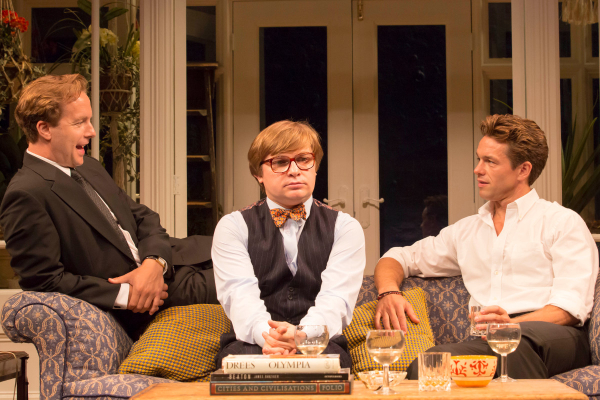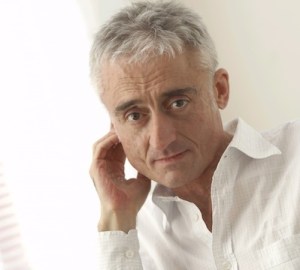My Night With Reg (Donmar Warehouse)
Robert Hastie’s revival of Kevin Elyot’s play is beautiful and brilliantly cast

© Johan Persson
Twenty years ago, when the late Kevin Elyot‘s superb tragi-comedy of gay relationships in London in the late 1980s opened at the Royal Court (before hitting the West End, triumphantly), and as the AIDS epidemic took hold, some critics approved its manner of treating gays as "just like us".
Others found solace in its skill and cleverness of construction: time slips over four years between a house-warming in north London and two wakes; five or six beddings and two funerals, in fact. Reg doesn’t figure at all, except as a sombre spectre of death. The play was an instant classic, a change of tone from the noisy special pleading of such great American rants as Harvey Fierstein’s Torch Song Trilogy, Larry Kramer’s The Normal Heart or Tony Kushner’s Angels in America.
Elyot, who died two months ago, was indeed a writer of subversive boulevard comedy, a kind of up-to-date Terence Rattigan with no emotional constrictions; he was pleased that director Robert Hastie was mounting the first London revival of Reg, and he might have been thrilled that he’s done it so well, so beautifully, and cast it so brilliantly.
House-proud, floppy-haired Guy (Jonathan Broadbent), stiffening his egg whites and blinking endearingly behind huge spectacles like an unloved mole, still carries a torch for Julian Ovenden‘s strapping John ("Juanita"), who was secretly in love with Reg, who in turn was art-dealer Daniel’s (Geoffrey Streatfeild) partner; these three (and Reg) were at Marlborough School together and declare, in full cry, that "the Beverleys live".
The Beverley Sisters (as opposed to the Everly Brothers) were a blonde sibling pop trio, one of them married to the England football captain; in contrast, Guy’s decorator, Eric (Lewis Reeves), titivating the conservatory and listening to the Police (whom he wants to join one day, but with a truncheon), knew Reg as "Dwight." And surely everyone knows that Reginald Dwight is the real name of Elton John?
Eric works in the gay pub up the road – Eric’s from Birmingham , not Bradford as in the original – where there’s another Eric, and two Normans. And the onstage group is completed by Benny (Matt Bardock), a butch, unshaven bus driver and his long-suffering, slightly fey partner Bernie (winningly played by Richard Cant as an elongated streak of moaning misery).
And of course Bernie Taupin wrote the lyrics for Elton’s hit song "Benny and the Jets"… anyway, David Bowie’s the real man for the posh boys, who all bonded, sort of, on the school production of The Bacchae ten years ago. Guy is now an advertising copywriter, Daniel an art-dealer and John working his way through the family fortune.
John has an undeserved windfall at the end, benefiting from an act of unconditional generosity, while others are engulfed by unexpected developments: there are storms all around and Daniel is caught up in a version of Nero’s orgiastic Rome on Hampstead Heath ("I almost went down on a tree"); Benny and Bernie are suddenly riven beyond endurance; John is curiously intrigued by Eric, and we see why in a full-frontal exposition; and Guy gets custard all over his quiche.
Above all, Reg is a lovely, touching play about old friendships and sudden liaisons, much more enjoyable all over again than I’d dared to expect. It set the benchmark for gay drama with popular appeal for that period, and will serve again. Elyot has been restored and justly celebrated.















